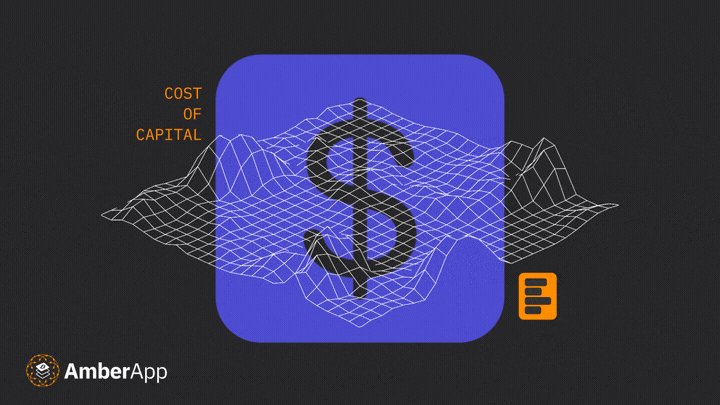Introduction
Money is not just a means of transaction; it is the lifeblood of an economy, serving as a medium of exchange to facilitate international and domestic trade. Money is the thing that all other goods and services are traded for, the final payment for such goods on the market (Mises, Theory of Money and Credit,1912). However, when it comes to savings and measuring value, not all forms of money are created equal. In the realm of sound money, Bitcoin has emerged as a disruptive force to the established financial order which runs on fiat (money by decree). The significance of money extends far beyond its day-to-day use case. Let’s embark on a brief journey through the intertwined concepts of value, exchange, and prosperity to explore why money matters, and delve into the revolutionary potential of Bitcoin.
Value and Exchange
In the myriad of human interactions, we exchange goods and services, driven by our subjective valuations. Imagine a bustling marketplace, where individuals bring their unique talents and offerings. Each person seeks to improve their well-being by trading something they have for something they want. This exchange of people acting and interacting, rooted in the value we attribute to different goods and services, is the engine that propels economic activity.
The Birth of Money
Not all trades are seamless. In a barter system, individuals face the complex task of finding a direct match between what they want, need or desire, and the goods or services offered by others. Consider a farmer who needs a pair of shoes, but the cobbler desires sacks of wheat in return. While not impossible, such a trade is made all the more difficult by the absence of a common medium of exchange. In fact, the absence of a common medium of exchange creates hurdles, dampens trade, and hampers economic growth.
This absence of a common medium of exchange creates a problem called the “double coincidence of wants.” It refers to the challenge of finding a direct match between what individuals want to obtain and what others are willing to accept in return. This lack of compatibility hampers trade, creates hurdles and friction which hinders economic growth.
The Emergence of Sound Money
Enter money, the most tradeable good in an economy that helps connect our diverse wants and needs. Money, in its ideal form, possesses certain characteristics: it is scarce, durable, divisible, portable, and fungible. These qualities are essential to prevent debasement, manipulation, and erosion of purchasing power, thereby preserving the incentives for economic productivity. They also enable it to serve as a universal intermediary, facilitating transactions and freeing us from the inherent restrictions of barter.
Stability and Trust: The Currency Conundrum
As societies evolved, civilisations grew and various forms of money emerged—commodity money, such as rai stones, glass beads, salt, and even cattle, were all used at various times by various cultures as a form of money. Nowadays, we unwittingly use government-issued currencies. The stability and soundness of money is paramount, because money has the power to influence the well-being of individuals and the health of economies. Imagine living in a world where the currency you hold crumbles in value overnight, making your hard-earned savings evaporate into thin air. For example, at the beginning of 2023, the central bank of Lebanon devalued their currency by 90% in an effort to stave off hyperinflation. Imagine you’re saving up for something in Lebanese pounds only to wake up one morning to discover that what you saved so far was now, somehow, worth 90% less than it was the night before, and now you need to work 90% harder just to return to the same purchasing power you had a few days earlier. In such a world, economic decisions become increasingly difficult and fraught with uncertainty, stifling investment, innovation, and prosperity.
Have you setup your SMSF yet?
Fiat Currency: The Great Deception
Since 1971, the rise of modern day fiat currency has ushered in a new era of economic challenges. Governments, armed with the power to create money out of thin air, unleashed a Pandora’s box of devastating consequences. Central banks unfairly possess the unethical power to create money at will, leading to an easy expansion of the money supply. This, in turn, distorts price signals, misallocates resources, including time, and creates economic imbalances. History is replete with examples, like Zimbabwe’s hyperinflation, the debasement of the Venezuelan bolivar, or the slow erosion of purchasing power in the United States, the UK, Australia and elsewhere over time. Sadly, fiat currencies have become instruments of economic deception and devastation for billions of people all across the world.
The Austrian Vision of Sound Money
The Austrian economic vision of sound money revolves around the principles of stability, scarcity, and decentralization. Austrian economists argue that money should have a fixed supply, ensuring its value remains stable over time. They advocate for a currency that is not subject to manipulation by central authorities, as this can and will distort economic signals which, again leads to the misallocation of resources, including conflating savings with investments. Additionally, Austrian economists emphasize the importance of market-driven competition in determining the form of money, rather than relying on government mandated fiat. They believe that sound money serves as a foundation for economic freedom, protecting individuals from inflationary pressures and preserving the integrity of the market system.
Enter Bitcoin
Bitcoin is a digital currency that embraces the principles of sound money. Bitcoin’s open source algorithmic design limits its supply to 21 million coins, making it inherently scarce. This scarcity, combined with its other sound money attributes, positions Bitcoin as a sound alternative to fiat currencies. Plus, its decentralized nature removes the need for trust in central authorities, like banks, providing individuals with greater control, empowerment and responsibility over their own wealth and well-being.
Remittances and Micropayments
Traditional remittance channels, such as Western Union, impose substantial fees and lengthy processing times, disproportionately affecting the poorest and most vulnerable individuals. In contrast, Bitcoin’s low transaction fees and near-instantaneous settlement make it ideal for remittances, especially for those sending money across borders. Bitcoin’s unmatched efficiency in this regard offers a lifeline to those reliant on such services, reducing costs (by at least 6% saving $16 billion per year) and increasing the speed of transactions.
Protection Against Confiscation and Capital Controls
In an era of increasing surveillance and restrictions on financial freedoms, Bitcoin provides a means of safeguarding wealth via self-custody. Individuals living under oppressive regimes or facing confiscatory policies can store their value in a decentralized and censorship-resistant form. By enabling individuals to control their funds without reliance on intermediaries, Bitcoin empowers economic sovereignty and preserves individual liberties.
Freedom and Inclusion: Bitcoin’s Promise
Bitcoin’s potential extends beyond safeguarding against inflation. In a world of increasing financial surveillance and restricted access, Bitcoin offers economic freedom and inclusion. Imagine a system where borders become irrelevant, financial intermediaries are obsolete, and individuals have the autonomy to store and transfer value independently. Bitcoin opens new avenues for those excluded from traditional financial systems, empowering them to participate in the global economy. As fellow Bitcoiner, Alex Gladstein writes, Bitcoin is a Trojan Horse for freedom.
A Reformation of Economic Calculation
Sound money, such as Bitcoin, refines and revitalises economic calculation—the compass that guides entrepreneurs, businesses, families and individuals in navigating the marketplace. Price signals, unencumbered by manipulation, regain their true meaning, enabling true price discovery to be found in the efficient allocation of resources. Bitcoin’s emergence heralds a modern reformation where true economic calculation thrives, fostering innovation, entrepreneurship, and overall prosperity.
Conclusion
Money matters because it forms the bedrock of economic activity, facilitating trade, investment, and true economic calculation. The advent of Bitcoin heralds a paradigm shift in the understanding of money, challenging the traditional fiat-based financial system. With its scarcity, decentralization, and disruptive potential, Bitcoin presents an alternative to fiat money that can protect individuals against inflation, foster economic freedom, promote financial inclusion, and safeguard wealth. As the world continues to grapple with economic uncertainties, exploring the potential of sound money, particularly Bitcoin, becomes an imperative step toward a more prosperous and equitable future for all.
Do you want to learn more about why money matters, and how you can use the best money ever discovered? AmberApp makes it easy for you to start stacking sats in minutes.
Download AmberApp and make your first Bitcoin purchase in under 90 seconds.







